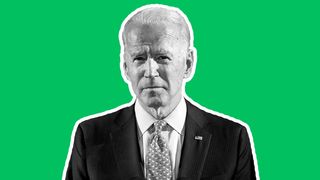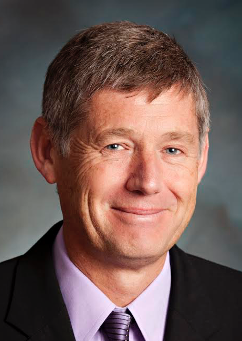After the tension of a very close election and dealing with the last gasps of the Trump era, work on climate action starts when Joe Biden and his team start making key appointments to his new administration. The Biden transition team will need to fill around 4,000 roles, of which 1,200 will require confirmation from a potentially hostile Senate. These appointments will have impacts across a range of contentious policy issues requiring not just the identification of qualified personnel but also meeting broader criteria such as balancing progressive and moderate ambitions, blending experience with new blood and achieving an appropriate gender and racial diversity.
Factional tensions
Climate activists, who supported Biden during the campaign, are expecting an ambitious agenda that delivers much more than just a post-Trump reset. They are demanding both significant carbon reductions and action on environmental justice from the new administration. This means who Biden appoints and doesn’t appoint, as well as what new climate focussed roles are created will be closely scrutinised. Climate will be an early touchpoint, potentially vital to maintaining the nascent détente between progressives and moderates.
Climate activists, who supported Biden during the campaign, are expecting an ambitious agenda that delivers much more than just a post-Trump reset. They are demanding both significant carbon reductions and action on environmental justice from the new administration.
A factor supportive of continued party cooperation is that the Biden transition team is comprised of prominent progressive and centrist players, including chair and former Senator and Biden chief of Staff Ted Kaufman as well as Warren advisor Julie Siegel and Gautam Raghavan, chief of staff to Congresswoman and Congressional Progressive Caucus co-chair Pramila Jayapal.
Counting against this, however, is the angry response from climate activists to Biden’s recent appointment of Louisiana Congressman and historic beneficiary of fossil fuel funding Cedric Richmond to an important Department of Labor position. Progressives, who want a strict fossil-fuel-free purity test for all appointees, are angry that Biden has ignored their wishes with his first major selection. Varshini Prakash who is the director of the Sunrise Movement and a progressive representative on the climate unity team, set up to guide the Biden campaign, called the appointment “a betrayal”.
Key climate appointments
The two highest-profile, climate-centric cabinet appointments, both of which require Senate confirmation, are the Energy Secretary and EPA Administrator. The timing and outcome of the two Georgia Senate races could play a part in who Biden selects, but if Republicans (or West Virginian moderate Joe Manchin) control the Senate this should favour moderates. There will also be a dozen or more senior climate critical roles in Justice, Transportation and Agriculture. The former critical if a Green New Deal environmental justice agenda is on the table and the latter if the administration wants to broaden the decarbonisation to include farm-based emissions.
Climate advocates, however, want more — calling for the creation of a new cabinet-level Office of Climate Mobilization as well as new senior roles specifically dedicated to environmental justice. The creation of a new cabinet-level position with full departmental authorities requires congressional approval so seems highly unlikely. Expect instead to see the appointments that bypass the Senate such as a senior climate “co-ordinator” tasked with managing an inter-departmental climate response as well as climate roles within the Executive Office of the President. The structure of the overall climate team and who is tasked to run these new functions will be closely watched.
Climate change candidates
So, who are the candidates for the high-profile climate positions? John Kerry former Secretary of State and climate unity team co-chair has been appointed to a new role as Special Presidential Envoy for Climate and will report directly to President Biden as part of the National Security Council. Given Kerry’s role in the Paris climate negotiations, this appointment looks to be aimed at an international reset and sending a clear message to the global community that the United States will be seeking to play a leading role in the COP26 meeting scheduled for Glasgow in late 2021. The other climate unity team co-chair, Congresswoman Alexandria Ocasio-Cortez is unlikely to want to limit herself to climate and is expected to position herself to exert influence from the outside rather than accept a role within the administration (an outcome that might suit President Biden as well). Among the rest of the team, experienced moderates like Gina McCarthy (former EPA administrator), Kathy Caster (Chair of the House Climate Crisis Committee) and ex Biden staffer Kerry Duggan (CEO of the Natural Resources Defense Fund) are all strong candidates. On the progressive side, the team included Varshini Prakash and Catherine Flowers, who has a background in rural poverty and environmental justice. A combination of Duggan and Flowers might be a compromise outcome.
Given John Kerry’s role in the Paris climate negotiations, his appointment looks to be aimed at an international reset and sending a clear message to the global community that the US will be seeking to play a leading role in the COP26 meeting scheduled for Glasgow in late 2021.
Former Michigan Governor Jennifer Granholm and long-term climate warrior John Holdren both have support. Holdren, with over three decades at Harvard and UC Berkeley, specialised in topics like population growth and the depletion of natural resources as precursors to entering the climate debate. Despite his impressive academic record, prior roles in both the Clinton and Obama administrations will count against him with progressives who want to avoid the incrementalism they believe limited previous Democrat administrations. Granholm, with gubernatorial executive experience, is better placed.
EPA experts, aware of the complexity of the agency and the need for a post-Trump revitalisation are looking at Californian Mary Nichols (California Air Resources Board) and Heather McTeer Toney from Mississippi (Regional EPA administrator) to head a Biden EPA. McTeer Toney, who is African American and from the South, may have an advantage with her superior environmental justice background.
The push to establish a zero-fossil fuel industry exposure standard would count against some high-profile candidates. This purity test extends to include those who may have previously supported an “all of the above” energy policy or endorsed the use of gas as a short-term replacement for coal. Former Obama staffers impacted by this policy include Heather Zichal (Deputy Assistant for Energy and Climate Change and board member of gas company, Cheniere Energy), Brian Deese, (US Paris negotiator and now Black Rock executive) and Ernest Moniz (Secretary of Energy and board member of the giant electric utility, Southern Company).
The big picture
Wagering on who is going to get what role in the new administration is the current parlour game for DC watchers. While a distraction from the increasingly strange manoeuvres of President Trump, it obscures a larger picture. If Biden is going to stand any chance of achieving the high goals many in his party (and the broader community) expect, he is going to need both the executive administrative horsepower to run major government departments like EPA and DOE as well as strategic and public policy thinkers needed to move past rhetoric and deliver significant reductions in CO2 emissions. Candidates with these skills no doubt exist but the rapidly changing economics of wind and solar as well as the emergence of new technology options means past expertise will only be a partial guide.
Given the Democrats are committed to zero carbon targets within the next two to three decades, progress is no longer simply about winning hearts and minds or even attacking the fossil fuel industry — it is about concrete results. It is about policy settings that result in investments to rebuild the nation’s power generation assets and start the electrification of the light vehicle transportation fleet. In parallel, Joe Biden needs to meet at least some of the Green New Deal aspirations for greater community engagement and profit-sharing, support for redundant oil and gas workers and a significant role for organised labour. In short, Biden needs to deliver demonstratively lower CO2 emissions without the overt creation of a new cadre of green billionaires.
In the face of opposition and ambivalence from elected Republicans and the millions of disappointed Trump voters, he needs to avoid or quickly discard indecisive centrists, uncompromising zealots, experts with fixed ideas and those attracted to the career promoting profile of a White House posting. The individual choices Biden makes will be important but his ability to first assemble the right team and then lead them effectively will be more important.






